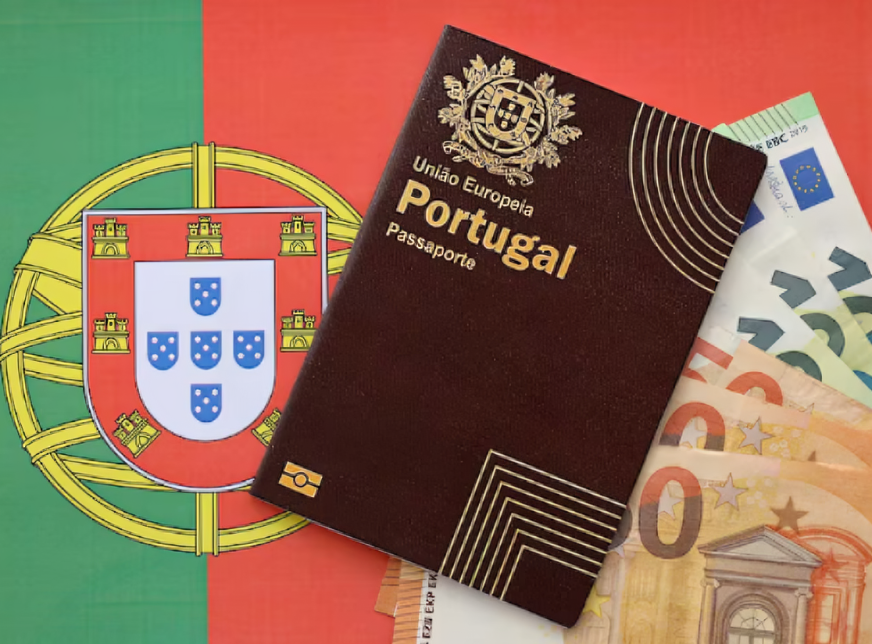Top Investment Options for the Portugal Golden Visa
Portugal's Golden Visa program offers a unique opportunity for non-EU nationals to gain residency through investment. Introduced in 2012, this program has evolved significantly—especially in recent years—to promote economic growth in sustainable sectors. While traditional real estate options were once popular, reforms have shifted the focus toward long-term, non-speculative investments such as innovation, job creation, and cultural preservation. Today, investors must look beyond property markets to qualify for the visa, targeting sectors that genuinely contribute to Portugal’s economic and social development. For those interested in living, working, or traveling freely within the Schengen Area—and eventually obtaining citizenship—understanding the current investment routes is essential. In this guide, we’ll explore the top investment options available in 2025 under the revamped Golden Visa framework. From regulated investment funds to philanthropic contributions, we’ll break down each route’s benefits, requirements, and suitability depending on your goals.

Investment Funds (Private Equity & Venture Capital)
Investment funds have become the leading option for Golden Visa applicants seeking a balance between return on investment and ease of process. The minimum required contribution is €500,000 into a Portuguese-regulated fund that allocates at least 60% of its capital to businesses within Portugal. These funds are typically focused on areas like technology, green energy, pharmaceuticals, and sustainable development. Investors benefit from professional management, a hands-off approach, and diversification across multiple sectors. Most funds have a maturity period of five to ten years and offer potential annual returns, although these vary based on risk profile. This route appeals to investors who want to participate in Portugal’s growing economic sectors without dealing with the complexity of direct business management. It’s also popular for its low bureaucracy—especially compared to other options that require creating jobs or launching companies. Since most of the compliance and reporting is handled by fund managers, applicants can focus on meeting Golden Visa residency requirements. For those seeking both financial returns and a streamlined visa process, this option ranks high in popularity and practicality.
Scientific Research Contributions
Contributing to scientific research is another pathway that qualifies for the Golden Visa. This option requires a minimum investment of €500,000 and is aimed at funding innovation and development within public or private Portuguese institutions. Areas of research often include medical sciences, environmental studies, biotechnology, and engineering. This option is ideal for individuals who are interested in impact investing—where the goal is to support meaningful progress rather than financial return. It also aligns well with investors who prioritize sustainability and long-term development. While this investment path does not typically yield direct profits or capital appreciation, it plays a crucial role in supporting national priorities. Many investors choose this option for philanthropic or legacy reasons, especially those involved in academia, healthcare, or technology fields. Since funds are directed toward certified research institutions, there is a layer of oversight ensuring that the money is used productively. Though not suited for those seeking ROI, this is a highly respected path for those looking to make a difference while securing Portuguese residency. See Also
Cultural and Heritage Donations
Investors can also obtain the Golden Visa by making a minimum contribution of €250,000 to artistic or cultural projects in Portugal. This can involve the preservation of national heritage, restoration of monuments, funding of artistic productions, or supporting museums and public institutions. For low-density areas, the investment threshold may be reduced to €200,000, making this the most cost-effective route into the Golden Visa program. It appeals especially to philanthropists, art lovers, and cultural advocates who want their investment to support public good. Unlike other routes, cultural contributions are purely philanthropic, meaning there's no financial return involved. However, the emotional and ethical reward of supporting a nation’s heritage and culture can be deeply fulfilling. Additionally, this pathway carries less financial risk and often involves a faster approval process. While it may not suit every investor, this option is an excellent choice for those who want to secure residency through socially meaningful contribution rather than commercial ventures.
Business Investment with Job Creation
This route involves investing a minimum of €500,000 into a Portuguese business that creates at least five full-time permanent jobs for Portuguese nationals. This investment can be used to establish a new company or expand an existing one. It’s an excellent choice for entrepreneurs or business owners who want to establish an operational presence in Portugal while fulfilling the visa’s economic contribution requirements. The types of businesses eligible vary widely, from hospitality and agriculture to tech startups and manufacturing. This option demands a more hands-on approach, as the investor is often directly involved in the day-to-day management of the company or must ensure that local management runs operations efficiently. There are also ongoing responsibilities, such as payroll, taxation, and compliance with Portuguese labor laws. However, this route allows for full control over the investment and the potential for higher returns, especially if the business grows successfully. For entrepreneurial-minded individuals, this investment route offers both visa access and long-term financial opportunities.
Company Formation Focused on Job Creation
Distinct from business capital investment, this option centers solely on job creation. It requires the formation of a company that creates at least ten full-time jobs for local residents—without a minimum capital investment threshold. In certain regions classified as “low-density,” the job requirement can be reduced to eight positions. This is particularly attractive for investors who want to contribute directly to the country’s employment sector without needing to commit to a high initial monetary figure. While the lack of a fixed capital requirement gives more flexibility, this route requires an operational business plan and ongoing commitment to hiring, training, and managing employees. It’s ideal for investors looking to establish ventures such as retail stores, service agencies, small factories, or other labor-intensive enterprises. The main benefit of this path is its direct alignment with Portugal’s economic development goals, making approvals smoother if job creation is clear and sustainable. It’s best suited for those prepared to live in Portugal or maintain close oversight of operations.
Real Estate (Previously Eligible, Now Discontinued)
Until 2023, real estate was the most popular route for Golden Visa applicants. Investors could purchase property—often with a minimum value of €500,000, or €280,000 in renovation projects within low-density areas—and qualify for residency. Many investors bought properties in Lisbon, Porto, and the Algarve, enjoying capital appreciation and rental income while meeting visa requirements. However, growing concerns about housing affordability and speculation led to this pathway being phased out. As of the latest reforms, direct real estate investment no longer qualifies for the Golden Visa program. While real estate remains a good option for personal use or income generation, it no longer satisfies residency criteria under the program. However, investors interested in real estate can still access the market through regulated investment funds, provided those funds are not real-estate-heavy. Understanding the change helps applicants avoid outdated or non-compliant strategies. The phase-out also reflects Portugal’s commitment to directing foreign capital into sustainable, diversified areas of the economy.
Capital Transfer (Now Phased Out)
In earlier versions of the Golden Visa, a direct capital transfer of €1.5 million into a Portuguese bank account or approved financial institution was enough to qualify. It was favored by high-net-worth individuals who wanted a straightforward path with minimal management or involvement. The money simply had to stay within Portugal’s financial system for the duration of the residency requirement, with no specific purpose beyond economic contribution. However, in alignment with broader reforms, the capital transfer option was also eliminated. The government shifted focus toward investment methods that provide long-term economic impact—like job creation, innovation, and cultural support. While existing applicants under this route are grandfathered in, new applications must select from the active options like fund investment, job creation, or philanthropic contributions. This marks a significant change in how the program values sustainable and active investment over passive capital storage.
Conclusion: Choosing the Right Path for You
Portugal’s Golden Visa program remains one of Europe’s most attractive residency-by-investment schemes—but it has evolved. Today’s options prioritize long-term economic sustainability, social impact, and innovation over passive investment. Whether you’re an entrepreneur, philanthropist, or investor seeking returns, there's a path tailored to your goals. The key lies in choosing a route that aligns not only with visa requirements but also with your personal and financial vision. Fund investment offers diversification and simplicity, while business ventures suit those with entrepreneurial ambition. Cultural and scientific contributions speak to those wanting to leave a positive mark. Regardless of the route, Portugal offers a high quality of life, access to the Schengen Area, and a clear pathway to permanent residency and eventual citizenship. With careful planning and the right guidance, your Golden Visa investment can become a gateway to a new chapter of life in one of Europe’s most welcoming countries.

